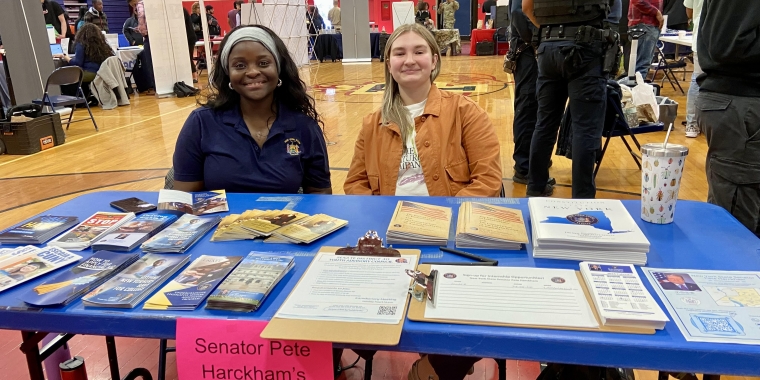
Harckham Bill Will Prohibit Discrimination By Insurers Against Nurses Who Carry Opioid Blockers
May 6, 2019
-
ISSUE:
- Opioids
- Nurses
- Naloxone
- Senator Harckham
(Albany, NY) Senator Pete Harckham and Assemblymember Linda Rosenthal held a joint press conference in the Capitol today to discuss S.3159a/A.5952a, a bill that would allow nurses and other healthcare providers to obtain a prescription for the opioid blocker Naloxone, without repercussions from insurers, so they are prepared to help people who are overdosing. Some nurses who have obtained prescriptions for this purpose have found that they were rejected for life insurance policies.
The opioid epidemic is raging across the United States. Overdoses are killing more people in New York State than car accidents, suicides, and homicides combined. The U.S. Surgeon General has made a call for the increased availability of Naloxone, a drug that blocks the effects of opioids and can be administered to patients who are overdosing on the drugs. To aid in this effort, some nurses and healthcare professionals have obtained the lifesaving drugs without a patient specific prescription. Unfortunately, this means that this drug will appear on their active medication lists, and life insurers have been denying these individuals coverage solely on the basis that they carry Naloxone.
Senator Pete Harckham, SD40, Chair of the Senate Committee of Alcoholism and Substance Abuse, says, “It’s discriminatory for insurers to penalize nurses and other medical personnel for carrying Naloxone to save lives. These professionals are obtaining prescriptions so they can save people overdosing on opioids, anywhere and anytime. We need to encourage more healthcare providers to carry Naloxone, not scare them off.”
Assemblymember Linda B. Rosenthal, AD67, Chair of the Assembly Committee on Alcoholism and Drug Abuse says, “Would anyone deny life insurance to a person with diabetes who carries insulin or someone with asthma who carries an inhaler? Of course not. Denying life insurance to people who carry Naloxone is just another example of the institutional discrimination that persists and discourages people struggling with substance use disorder from ever getting help. As we in the State work to get Naloxone into the hands of as many people as possibly, the life insurance industry’s irresponsible attitude is undoing our progress and increasing the likelihood that people who overdose will die. This is unacceptable and I look forward to continuing to work with Senator Harckham and my colleagues to see our bill become law.”
Senator Neil Breslin, SD44, Chair of the Senate Committee on Insurance, says, “I applaud Senator Harckham for his advocacy and perseverance on this important legislation. By not allowing the prescribing of Naloxone as the sole reason for denying life insurance, more of this life saving prescription will be available to assist nurses, health care professionals and individuals.”
Tara L. Martin, State Political Director, New York State Nurses Association says, “Every day, nurses are on the front lines of the opioid crisis. We are committed to the work of saving lives, whether at a patient’s bedside or at home in our communities. The proposed legislation will allow healthcare professionals the ability to do their jobs without fear of retribution from insurers. We commend Senator Harckham and Assembly Member Rosenthal for protecting the rights of nurses who are protecting the lives of all New Yorkers.
The Senate version of the bill, S.3159a, passed during Session today.
New York State Senate District 40 includes parts of Northern Westchester (Briarcliff, Buchanan, Cortlandt, Croton-on-Hudson, Lewisboro, Mount Kisco, Mount Pleasant, New Castle, North Salem, Peekskill, Pleasantville, Pound Ridge, Sleepy Hollow, Somers, Yorktown) Putnam (Brewster, Carmel, Patterson, Southeast) and Dutchess (Beekman, Pawling).



